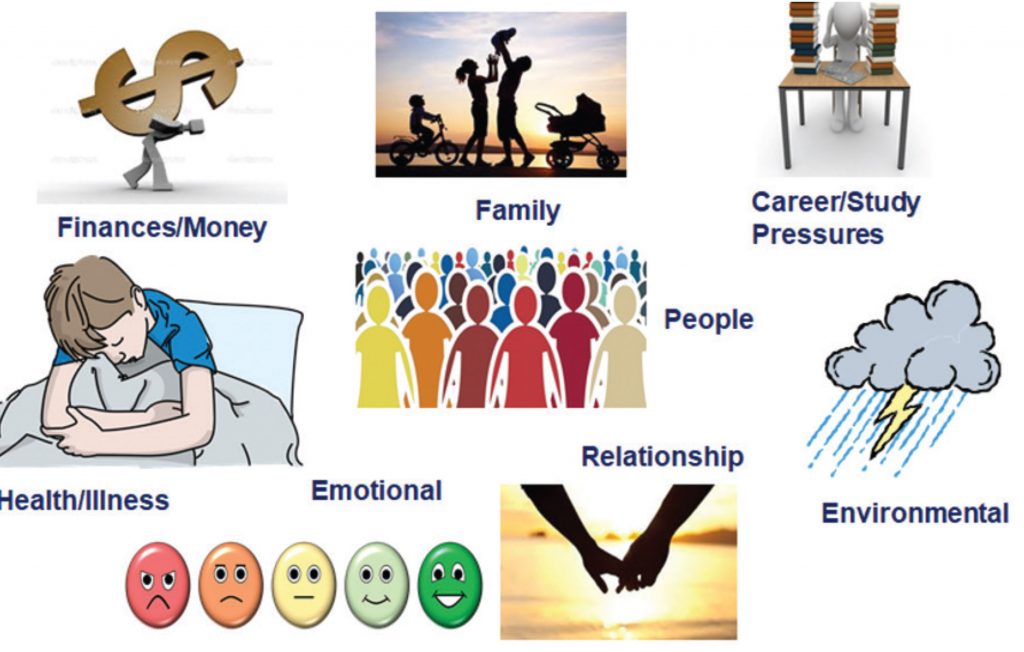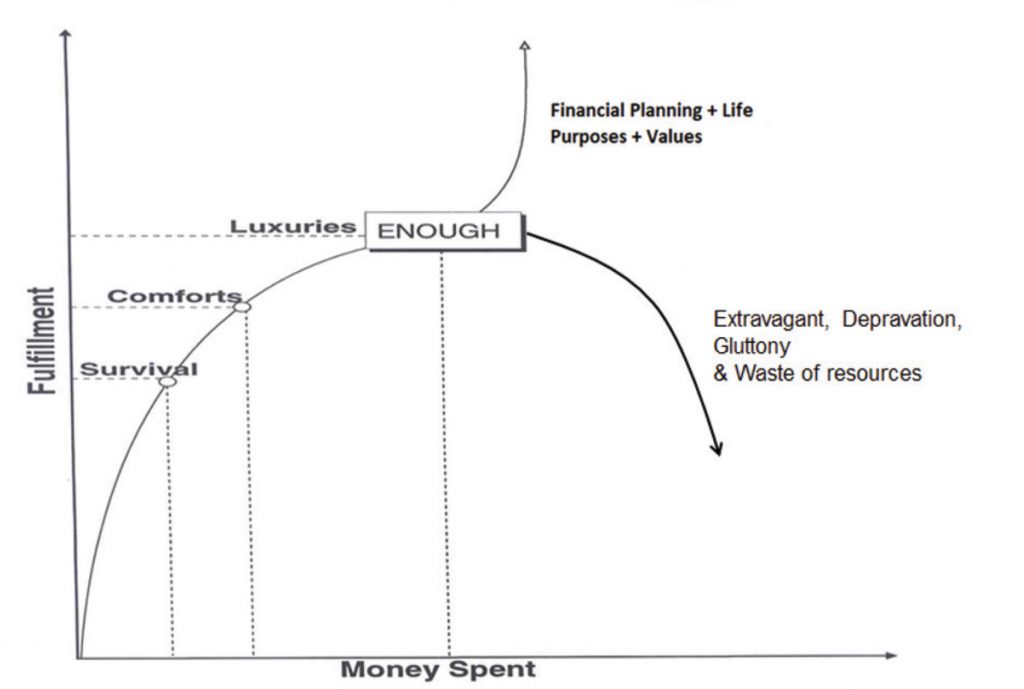There are numerous stressors in our life, which include the physical environment, weather, relationships, family, money, career, study, sickness, emotions, etc. as shown in Figure 1.

Let me first elaborate on how a career creates stress for us. To me, one of the keys to career planning is about knowing whether you like to deal/work with people; you will fall sick if you hate interacting with people but have to do so due to job requirements. I have a friend who falls into this category; he prefers to deal with computers, machines or robots without the need to entertain people. He thinks people are too emotional and it is very tiring to deal with them. This example serves as a self-reflection to re-examine your current situation on whether your job is the root cause of your stress. This could be the reason you do not feel well whenever you want to go to work or you wish to be “absent” from the job.
Another stressor is the weather. One example is Seasonal A”ective Disorder (SAD) caused by the weather. Let’s take the weather in London as our example. Those who have been to London would know that it constantly rains and is cloudy, and such an environment where the sun barely appears can cause people to easily feel depressed, moody, or down for days and this is could lead to suicidal tendencies. To fix this weather-related problem, some form of visual therapy is used where normally a room is set up with bright and colourful painted walls and decorations; entering such a room can make people can feel positive, relief, and bright again.
Out of the many stressors, our focus here is money because this is the top contributor to the overall stress we face daily. Carnegie also tells us that having financial problems is one of the top two problems that most people face in their families. So this will not surprise us when our Deputy Women, Family and Community Development Minister Hannah Yeoh said that, on a yearly basis, financial
issues top the reason for marriages ending in divorce.
Money is the biggest cause of stress
“Money is not everything, but without money, you cannot do (or have) a lot of things!” I am sure this truly re!ects the reality that we face today; but do not get me wrong, money cannot buy everything.
If you refer to the Fullfillment Curve in Figure 2, you will know the limitations of money. So let’s have a look. Spending money gives us a sense of fullfillment followed by comfort until it reaches an optimum phase called “enough”, and any extra amount of spending will not create any signi”cant happiness or satisfaction any more. Whatever goes over the limit might create a negative e#ect on us.
So be wise and take control of your money. Do not become a slave to money, trapped in the rat race and losing the real meaning of life and direction. Do remember to apply “nancial planning skills to use money as a tool to improve the quality of life for your family, and then further extend it to help those in need, especially those far below the “survival” phase. You will get more fullfillment or happiness from the help out of the value that you offer.

Figure 2: Life Ful!lment Curve
Financial planning with true life purpose and positive value brings the highest level of ful”lment and achievement in one’s life. Extracted from the Book “Master Your Finance, Master Your Life! Five Financial Strategies to Cope with Stress” by Yong Chu Eu



